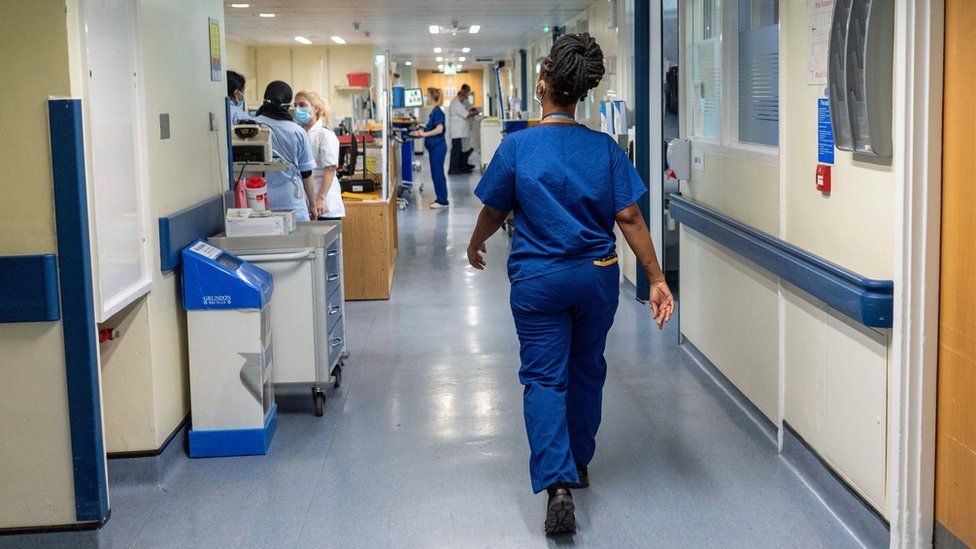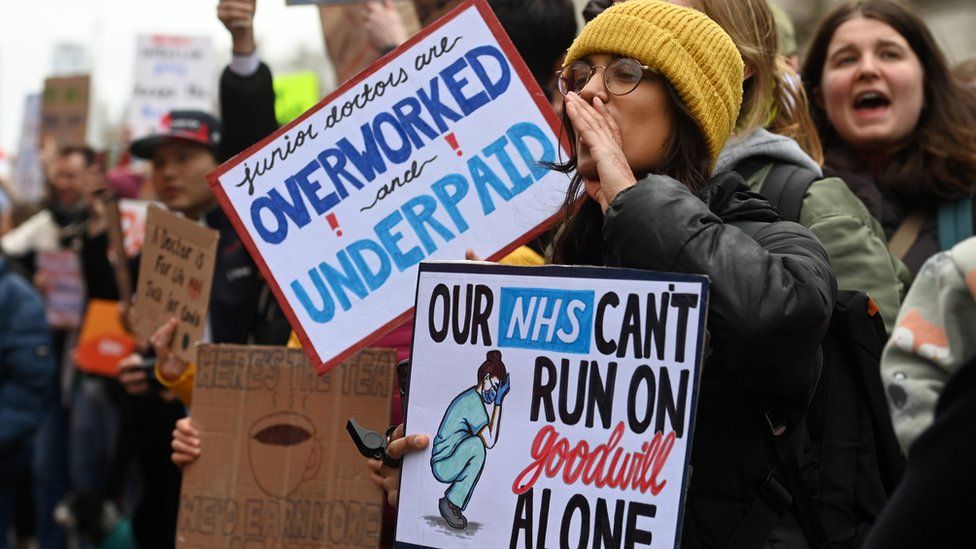NHS England chief Amanda Pritchard says strike disruption will get worse
This video can not be played
To play this video you need to enable JavaScript in your browser.
Patients are “paying the price” for the failure to stop strikes in the health service, the head of NHS England has said.
Amanda Pritchard said industrial action had caused “significant” disruption, and would get worse in the next round of strikes later this month.
Junior doctors and consultants will take part in a combined seven days of strike action in July.
“All sides” had failed to prevent the strikes, she said.
Ms Pritchard told BBC’s Sunday with Laura Kuenssberg show that the consultant strike will bring a “different level of challenge”, because of a lack of cover.
“There has been a significant amount of disruption, and that is only, at the moment, going to get more significant as we hit the next round of strikes,” Ms Pritchard said, referring to the industrial action in July.
“The hard truth is that it is patients that are paying the price for the fact that all sides have not yet managed to reach a resolution,” she said.
Last month, junior doctors voted for five days of strikes in mid-July – the longest strike yet.
They will walk out between Thursday 13 July and Tuesday 18 July after rejecting a government pay offer.
A few days after that strike ends, on 20 and 21 July, hospital consultants will also go on strike over pay.
- Senior doctors back strike action
- Junior doctors to strike for five days in July
Ms Pritchard said consultants’ work cannot be covered “in the same way” as junior doctors.
The health service has been plagued by strike action throughout this year, with doctors, nurses, ambulance workers, porters and others walking out in disputes, mainly over pay.
A breakthrough came in May, when unions representing all NHS staff except doctors and dentists backed a deal to receive a 5% pay rise.
However, junior doctors and hospital consultants have still not reached an agreement with the government.
Ms Pritchard acknowledged that it would be several years before the situation in the health sector returned to anything like good enough, and stressed that the service was doing all it could to bring waiting lists down.
NHS England says more than 600,000 appointments have been cancelled in previous strikes. The ongoing failure of the government and some of the medical unions to find agreement is only going to crank the pressure up still further.
Ms Pritchard called for the industrial action to be brought to an end as soon as possible, saying it cannot become “business as usual in the NHS”.
She also discussed NHS England’s new 15-year workforce plan, which she introduced alongside Prime Minister Rishi Sunak earlier this week.
- Will the plan to tackle NHS staffing shortages work?
The NHS currently has one out of every 10 posts unfilled, creating major pressure on staff and leading to long waiting times for patients.
The new plan is focused on training and retaining more staff. Ms Pritchard said the plan is not an “overnight” fix , but that it is part of efforts to “treat people as quickly as possible, without delay”.
Related Topics
- NHS
- Strike action
-
Senior doctors back strike action in England
-
4 days ago

-
-
Junior doctors to strike for five days in July
-
23 June

-
Published at Sun, 02 Jul 2023 11:17:44 +0000
